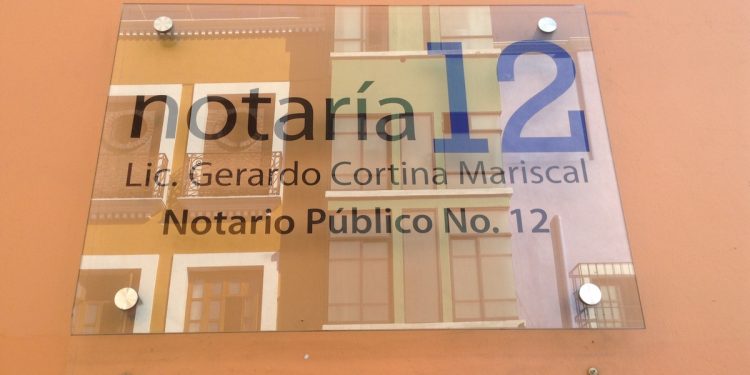If you want to buy and hold ownership of physical property in Mexico but you don’t have sufficient capital, and don’t want to borrow to buy, you might consider fractional ownership as means of investing in a property.
Fractional ownership can also be used when you want to fold a property into a business or community project with its ownership shared across two or more parties.
This article outlines the structure of fractional property ownership, and describes typical situations where this type of property arrangement is made.
The structure of fractional property ownership
Fractional ownership is distinct to other types of property transaction, thus:
It’s not Timeshare: Fractional ownership is very different to Timeshare because, unlike Timeshare contracts, the buyers each own a percentage share (a fraction) of the physical property through a special property trust.
The property is co-owned: For example, a property with a sales price of $5 million pesos might be purchased by 10 people at a cost of $500,000 pesos each. The property’s title is held in a trust, that is legally divided into 10 shares, with each owner holding 1 share (a 10% fraction) of the trust—and by extension, the physical property.
The property is co-shared: The owners are jointly and severally responsible for the maintenance and management costs of the property as well as other costs associated with the property, e.g., Home Owner Association fees, property insurance.
The property share (fractions) can be transferred: Owners in a fractional ownership arrangement are usually free to sell or transfer their share as they would any other asset but you should check the associated clauses and covenants related to the property trust for rules about transfer and disposal of shares—and contact a local accountant to ask about the tax treatment of any share transfers or sales.
Who buys a property ‘fraction’ and how does it work?
Buying property on a shared ownership or ‘fractional’ basis can be helpful in certain circumstances. The arrangements can be formed privately between individuals using a special property trust, known in Spanish as a fideicomiso, (and its related covenants) which are drawn-up by a Notary Public. Some companies specialize in this field, although a Notary Public must always be involved to ensure the integrity of the legal structure.
Property trust and contract
Once purchased, the property deed is placed in a form of ‘property trust’ with each party holding a share of that trust.
Covenants exist in the contract between the parties which stipulate the rules for use of the property, and how the costs of maintenance and other charges are to be divided and paid between the shareholders—including the annual fees required to maintain the trust.
Shareholders are usually free to sell or transfer their shares to whoever they want; although some covenants may stipulate certain terms and conditions to ensure that the remaining shareholders are satisfied with the potential buyer, or other person that will inherit the shares.
In some cases, an existing share holder may purchase the share(s) held by others and thus increase their overall stake in the property. In some cases, one of the parties may purchase all the shares and effectively “buy out” the other owners, becoming the sole owner of the trust—and thus own the entire property.
Use and management of the property
Use of the property is usually divided on a time basis (weeks per year, per share holder) with high-demand periods like summer holidays, Christmas and New Year, and Easter raffled or placed on an annual rotation system.
Some share holders might trade their allotted weeks with other share holders, by mutual agreement. Rules usually exist in the covenant about whether shareholders can sub-let or rent out their allotted weeks to third parties.
The parties themselves might agree to rent out the property on a commercial basis for some weeks of the year using online marketplaces, and agree between themselves how this will be managed.
Examples of fractional ownership situations
Fractional ownership is not suited to all circumstances, but it can be helpful in others. Here are some examples of typical situations where fractional ownership is used:
Insufficient capital: Fractional ownership is popular when the parties involved have some savings and want to invest in physical property but don’t have enough savings individually to buy a home outright, or don’t want to take on the entire responsibility of owning a second home themselves—sharing the purchase and running costs with others. It’s important to know and trust the other parties in the shared ownership arrangement.
Community effort to buy a larger home: Families living in a locality, or a group of friends or neighbors might band together to buy a larger home near a beach resort or other area of natural beauty they all know and enjoy so that they can use the home for vacations without having to pay hotel fees.
Dividing a property between family members: A family might place a property into a trust and give shares to family members. This is a form of estate planning.
Buying a large property for a business venture: If you need a large property for some business venture (e.g. spa, hotel, or retreat center), a large residential property might be purchased between the partners in the business (or other backers) and the trust shares given to each of the investors who put up money to buy the property.
Buying a large parcel of land for building homes on: A fractional ownership contract can also be helpful when a group of friends and/or family members who each want to build their own homes, but live within a cluster of other homes (perhaps with some shared facilities on-site). This arrangement can offer some shared costs, community, and security, while still offering individual dwelling spaces for each owner. It is, in effect, a form of private property development, and a fractional ownership trust can facilitate this type of arrangement between the interested parties.
The importance of the Notary Public
We recommend that all matters related to the buying, transfer, or sale of fractional property are undertaken through the professional support of a Notary Public to ensure that the trust, and its associated covenants and contracts, are legally sound and valid.
Learn more about property in Mexico
Mexperience offers detailed insights about property in Mexico for buyers, owners, renters, and sellers.
- Latest articles and insights about real estate in Mexico
- Finding a Notary Public in Mexico
- The costs and taxes of buying a home in Mexico
- Total costs of property ownership
- Insuring your Mexican home
- Offering shared space rentals in your Mexican home
- Enjoying your home and home life in Mexico
Mexico in your inbox
Our free newsletter about Mexico brings you a monthly round-up of recently published stories and opportunities, as well as gems from our archives.








